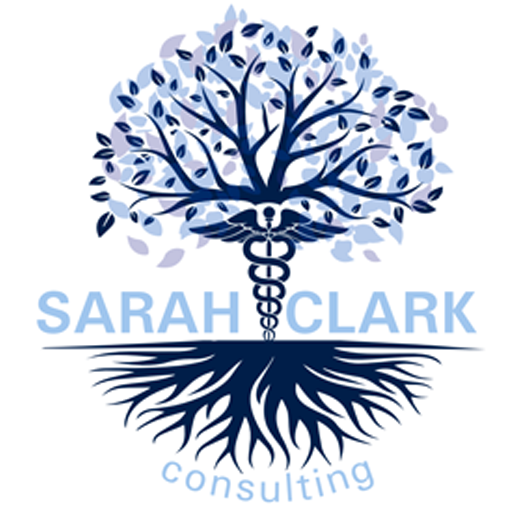
Growing up, my dad had this classic dad joke (I am using this term very loosely) he loved to play on us. Anytime we started a sentence with “Hey Dad, did you hear …?” His automatic response was with, “What?” just to (attempt to) make us repeat the entire sentence. Of course, he didn’t actually have any hearing issues, it was all part of the ultimate dad joke repertoire. My sister, mom and I would all roll our eyes and think, this is so ridiculous! Sometimes it was funnier than others and we’d humor him and follow through with the repeat question.
My dad passed away 18 years ago. I still think of him and that “joke”. Last year I turned 50, and guess what? I find myself doing the exact same thing. And you know what? I think it’s just as hilarious as my dad thought it was. To be fair, I’ve always loved Dad jokes, not just with this most recent birthday.

Sarah, her Dad, and her dog Holly circa 2005
But while those moments are all in good fun, hearing loss is no laughing matter for those who genuinely experience it. My husband happens to be one of them. He has 20% hearing loss in one ear, and though we don’t know why, we do know one thing: his hearing aids are a lifesaver.
Thanks to those tiny devices, we no longer need to crank the TV volume so high it could compete with a jet engine. Even better, when we’re out to dinner, his hearing aids can drown out the background noise (like that one overly loud table) and it’s all controlled through an app on his phone.
If you’ve noticed that you’re not catching conversations as easily, it might be time for a hearing check-up. I remember when my husband first started having issues, he insisted, “I’m not having trouble with my ears! You’re just mumbling!” Let’s be honest, mumbling is not one of my personality traits.
May 31 is National Save Your Hearing Day, and it’s the perfect reminder to prioritize hearing health. Protect your ears with proper hearing protection, schedule regular checkups, and don’t ignore those subtle signs of hearing loss.
E- Earplugs: Lengthy or repeated exposure to noise above 85 decibels can damage your hearing. By wearing earplugs, you can protect your ears from loud sounds, like a concert (120 decibels).
A- Avoid loud sounds: If possible, avoid loud sounds from noise, like fireworks, which can reach up to 155 decibels.
R- Reduce the level of sounds: Headphones with the volume turned all the way up can be as high as 120 decibels, which can cause severe damage to your hearing.
S- Shorten time: When possible, shorten the time you spend in loud situations, like the movie theater (100 decibels) or mowing your lawn (85 decibels).
Here’s an interesting fact to consider: there’s a significant link between hearing loss and cognitive decline. When you lose one of your senses, you’re losing some of your sensory input, which can make it harder to process what’s happening around you. For some, this leads to isolation, which only compounds the issue.
This brings me to an important point, hearing loss isn’t always obvious, and in a medical office, it can impact both patients and staff in ways we might not immediately recognize.
A patient struggling with hearing loss may not fully understand their care instructions, leading to frustration or miscommunication. Instead of assuming they aren’t paying attention, consider asking if they need you to speak more slowly, clearly, or if they’d benefit from written instructions.
Some patients may feel embarrassed to admit they didn’t hear something. A little patience and kindness, like making eye contact when speaking or repeating key points, can make all the difference in their experience.
A team member with hearing loss may struggle in meetings or when working at the front desk. Rather than assuming they’re ignoring you or being inattentive, approach them with understanding. Simple adjustments, like facing them directly when speaking or using noise-reducing technology, can make communication smoother.
Being mindful of noise levels in the office can also help. Many healthcare offices have constant background noise, phones ringing, machines beeping, conversations happening at different volumes. Consider creating quiet areas or using sound-absorbing materials to improve the work environment for everyone.
Of course, there are ADA/EEOC requirements and those should be implemented as well as needed. For more information on that you can visit the ADA site by clicking HERE
At the heart of a well-functioning medical office is clear communication, and that starts with compassion and kindness. Whether it’s making sure a patient fully understands their care plan, or ensuring a colleague feels supported despite their hearing challenges, small efforts can lead to big improvements.
So, take care of your ears, be patient with those who may struggle with hearing, and enjoy all the dad jokes loud and clear
Did you know Sarah Clark Consulting offers a FREE practice self-assessment? CLICK HERE to take the one minute assessment and get some great information to keep the smile on your face while making your practice more efficient!
